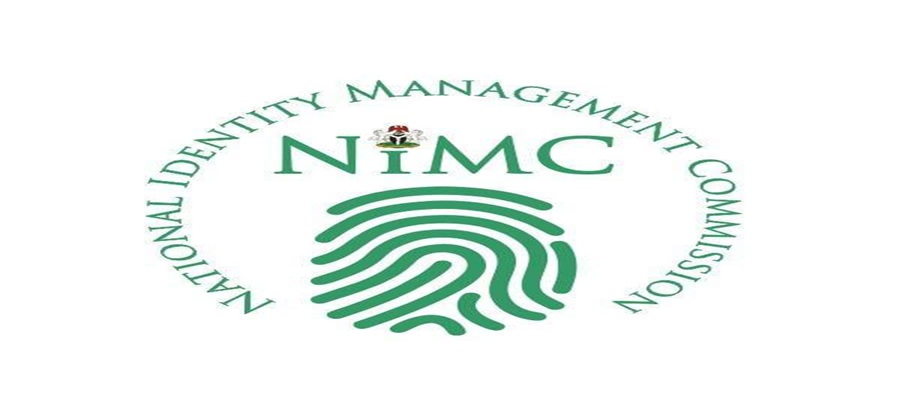Telecom
MainOne Shares 5 Checklists on Choice of Data Centre

Mainone Company on Monday, reminded information technology managers that a Data Center is not just a data Center hence it shared five (5) considerations before choosing one.
In its quarterly clients and marketing guide tagged, “MainOne WIRED” and for the first quarter 2014, the Company said, to the average IT Manager, data center services may be an undifferentiated commodity: a data center is a data center.
However, what appears to be minor differences between providers can have a major impact on the overall performance of a particular business.
MainOne explained that organizations requiring improved customer experience, 100% uptime for your critical applications or better alignment of IT with their business priorities, cannot afford to leave the critical data in the wrong hands.
Thus, a more rigorous scrutiny of a data center service provider will impact an organisation’s ability to achieve these goals.
MainOne, therefore shared a checklist comprising of five (5) parameters to choosing a data center provider to include:
“Connectivity Solutions
Never think of subscribing to data center services in isolation.
It is better to consider your selection of a data center provider in terms of how your IT infrastructure impacts your business and contributes to the bottom line.
With a Tier III, 600 Rack Space facility, touted as the biggest in West Africa and pending certification by the Uptime Institute, the MainOne Data Center ensures redundancy for all critical data center equipment with no single point of failure guaranteeing 99.982% uptime.
In addition, MainOne offers a one service provider solution for all your communication needs for hosting and connectivity, leveraging its submarine and terrestrial cable infrastructure across West Africa and partnership with Tier 1 infrastructure giants such as Level 3, Tata Communications, among others.
Proximity to Office Requirement
Proximity to your offices is a standard requirement in the search for an outsource data center service provider.
Benefits of this go beyond access for your staff; they include better performance of your IT infrastructure (when sending large data volume) and minimized latency delay, especially for real-time chatty applications.
MainOne’s Data Center is located in Lekki-Ajah, where it is easily accessible but geographically separated from the Central Business Hub of Lagos, Victoria Island/Ikoyi/Lekki axis. MainOne also has Colocation facilities in its Accra offices, and will complete another Tier III Data Center in Shagamu by Q2 2015.
High Availability
Colocation is more than stacking your equipment in a data center and adding a network connection.
Without highly reliable and redundant network connectivity, your IT performance will suffer. You need a provider with a full range of connectivity options to ensure all your locations get the access they need to your colocation environment and can provide networking between all of your company’s locations.
We have proven operation capability of running our facility at 99.99% uptime for 4 years, hosting major institutions in the region.
Our clients are supported by highly trained professional engineers, who are available round the clock to provide remote support, and standard SLAs.
In addition, MainOne operates its network end-to-end, to provide full visibility and integration across the network, allowing you greater control to optimize infrastructure performance. This ensures we deliver integrated network and colocation solutions, which enable a superior IT environment for your applications.
Power & Cooling Options
The importance of Power as a critical data center requirement cannot be understated, so it is necessary to look for a provider that has a 100% uptime SLA for power and redundant power systems.
With its 4x 1.5MVA generators fueled by 3 diesel storage tanks with 35,000 litres capacity in an N+N configuration, public power supply directly from national grid at 33KVA stepped down to 11KVA, power distribution into individual racks at 2.5KW to 5KW each, 30 minutes UPS backup power provider by UPS, and true parallel dual A+B power distribution to each collocated rack, there can be no man-made blackout with MainOne.
Our cooling facility also includes Direct Expansion cooling with 4x618KW chiller system, In-row cooling solutions for racks in excess of 10kW, and a humidity controlled at 50%+/-5%
Security
The compliance of your data center provider to global security is critical to your business solutions.
Unauthorized access to Data Center facilities should be prevented by current physical security technologies, such as Biometric scanners, video monitors, 24/7 armed security.
MainOne deploys in-building and perimeter surveillance systems, Biometric access to all colocation areas with air-lock doors to prevent unauthorized access, and CCTV cameras at all exit points.
As a connectivity supporter of Nigerian e-commerce sites such as Konga and Jumia, we are also working towards meeting PCI security standards”.
Telecom
Terra Moves to Expand in African Drone Sector, Secures $22m Funding

Olugbenga Agboola, Flutterwave CEO has joined a $22 million funding extension for Nigerian defensetech start-up Terra Industries as Africa’s fast-growing drone and security technology sector begins to attract capital far beyond traditional venture circles.

The round was led by Lux Capital, with participation from Agboola through Resilience17 Capital and returning investors including 8VC and Nova Global.
It follows an $11.75 million raise just weeks earlier, bringing Terra’s total funding to $34 million as the company accelerates expansion into high-risk security markets.
Terra, founded in 2024 by 24-year-old chief engineer Maxwell Maduka and CEO Nathan Nwachuku, builds autonomous drones and surveillance systems designed to protect critical infrastructure such as energy facilities, logistics corridors and industrial sites. The startup says it is already safeguarding assets worth billions of dollars while securing early federal and commercial contracts.
Agboola’s involvement highlights a broader shift in African tech investment patterns. While fintech has long dominated venture flows, escalating infrastructure sabotage and terrorism threats have elevated demand for locally developed security hardware.
“Nigeria’s drone ecosystem is rapidly evolving from hobbyist and mapping use cases toward industrial monitoring, border surveillance and energy protection, areas increasingly seen as foundational to economic stability.
“This is about backing infrastructure security at scale. Africa’s growth depends on resilient systems that protect critical assets,” said Agboola.
Terra CEO Nwachuku is adamant that locally engineered systems are better suited to African operating conditions. “We are building tools designed for the realities on the ground. Security technology should not always be imported when local innovation can respond faster and more effectively,” he stated.
Lux Capital partner Brandon Reeves underlined that the investor appetite, which has drawn fintech heavyweight interest such as Agboola, reflects rising cross-sector confidence in African defense technology as a commercial category. “Security is a prerequisite for economic growth,” he said.
“As Terra ramps production and expands regionally, its funding milestone illustrates a wider transformation. Drone and autonomous security platforms are no longer peripheral experiments but emerging pillars in Africa’s technology landscape, where fintech leaders and venture capital converge around safeguarding the infrastructure powering the continent’s next growth phase,” said Reeves
Telecom
Temu Assures Compliance Amid Nigeria Data Privacy Probe

Temu, the global e-commerce platform expanding in Nigeria, has officially addressed an inquiry from the Nigeria Data Protection Commission (NDPC) over alleged data privacy violations, confirming its commitment to compliance with the Nigeria Data Protection Act (NDPA) 2023.

Temu
The company’s response follows NDPC’s investigation into Temu’s data processing practices.
In a statement to Nigeria CommunicationsWeek, Temu stressed its dedication to local and international data protection standards, noting ongoing communication with the regulator. “At Temu, protecting user privacy and data security is a top priority. We are committed to complying with applicable laws and regulations in our data practices,” the statement read.
Temu further affirmed: “We can confirm that Temu has received the inquiry and is engaging with the Commission. We will continue to engage in open and constructive dialogue with the NDPC to address any questions or concerns.”
Under Dr. Vincent Olatunji’s leadership, NDPC has ramped up scrutiny of foreign digital platforms to safeguard Nigerian citizens’ personal data—from contact details to financial information—ensuring transparent and secure handling. For e-commerce giants like Temu, managing vast consumer data volumes demands strict regulatory alignment to sustain operations and trust in Africa’s biggest economy.
Industry observers view Temu’s proactive stance as a savvy bid to ease tensions, mirroring Nigeria’s firm handling of platforms like X (formerly Twitter) and fintechs. This engagement underscores NDPC’s rising clout, compelling investors and foreign entrants to prioritise data compliance costs.
Nigeria CommunicationsWeek sees Temu’s approach as a model for global retailers eyeing Nigeria’s booming digital retail sector through 2026.
Telecom
NIMC Rolls Out WorkflowPro for Paperless Correspondence

National Identity Management Commission (NIMC) has deployed WorkflowPro as its official platform for the digital submission and management of correspondence.

NIMC
Kayode Adegoke Phd, Head, Cooperate Communications of NIMC said this in a press statement on Tuesday, 17th February, 2026, pointing out that this was “In furtherance of President Bola Ahmed Tinubu’s Renewed Hope Agenda and the Federal Government’s commitment to institutionalizing a paperless public service.”
According to the statement, “The adoption of WorkflowPro marks NIMC’s formal transition to a paperless operating environment and reflects the Commission’s resolve to strengthen governance, improve administrative efficiency, and standardize records management in line with approved public sector reforms. The platform provides a secure, structured, and traceable system for managing both internal and external communications, thereby enhancing accountability and operational transparency.
“Under the new framework, all external correspondence to NIMC will be processed electronically through WorkflowPro. The system enables end-to-end tracking of submissions, accelerates internal routing and response timelines, and ensures secure electronic archiving of official records. This approach eliminates the risks associated with manual handling of documents while reinforcing compliance with established information management standards.”
Adegoke added that “The implementation of WorkflowPro is consistent with the Federal Government’s Enterprise Content Management (ECM) policy, which mandates the digitization of official records and the elimination of physical file movements across all Ministries, Departments, and Agencies (MDAs) .
“Accordingly, all external correspondence addressed to the National Identity Management Commission must be submitted via the NIMC WorkflowPro platform, accessible through the official portal link or by scanning the designated QR code:
Portal Link:https://workflowpro-nimc.com/Submit . Correspondence
To support effective implementation, NIMC has approved a 30-day transition period from the date of this announcement, during which stakeholders are expected to acquaint themselves with the new process. Upon the expiration of this period, the Commission will discontinue the acceptance of manually submitted letters and paper-based correspondence.
“WorkflowPro was developed by NIMC’s in-house technical team under the directive of the Director-General/Chief Executive Officer, Engr. (Dr.) Abisoye Coker-Odusote. The platform forms part of a broader institutional reform agenda aimed at strengthening the security of official communications, reducing administrative delays, and entrenching digital governance within the public service.
“The National Identity Management Commission enjoins all stakeholders to take note of this policy directive and ensure full compliance.”

 General News3 days ago
General News3 days agoJumia Targets Break-even in 2026 After Strong Q4 Surge

 General News3 days ago
General News3 days agoNigeria’s Banks Race to Meet CBN Recapitalisation Deadline Amid Verification Push

 General News3 days ago
General News3 days agoBOI, MTN Foundation Unveil N1Bn Fund for Women Entrepreneurs

 E-Financial3 days ago
E-Financial3 days agoNo VAT on Land, Buildings and Rent Under New Tax Law — Oyedele

 General News2 days ago
General News2 days agoUBA Unveils Diaspora Platform to Connect Global Africans with Investment, Wealth Opportunities

 News2 days ago
News2 days agoAfrican Leaders Highlight Africa’s AI Ambitions

 E-Financial3 days ago
E-Financial3 days agoCBN Slams Up to N10m Fine on Banks and Cheque Printers for Security Breaches

 General News2 days ago
General News2 days agoNDPC Orders Probe into Temu over Alleged Data Privacy Breaches


























